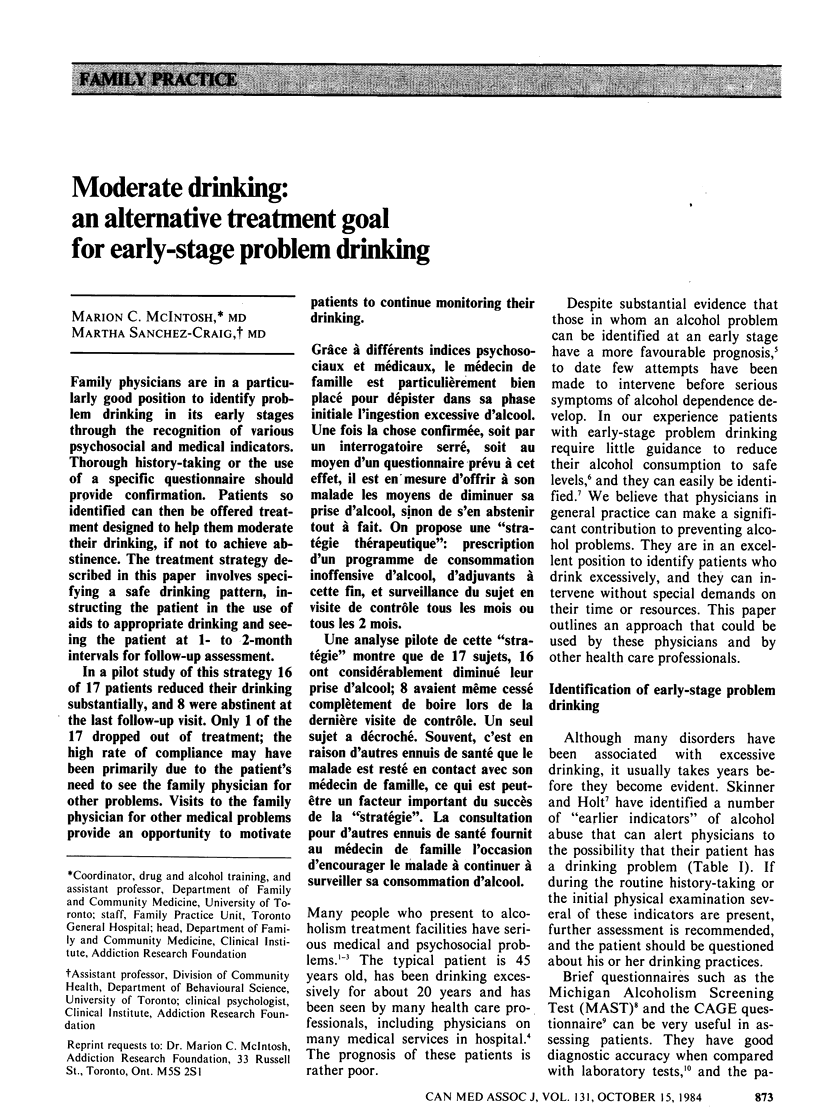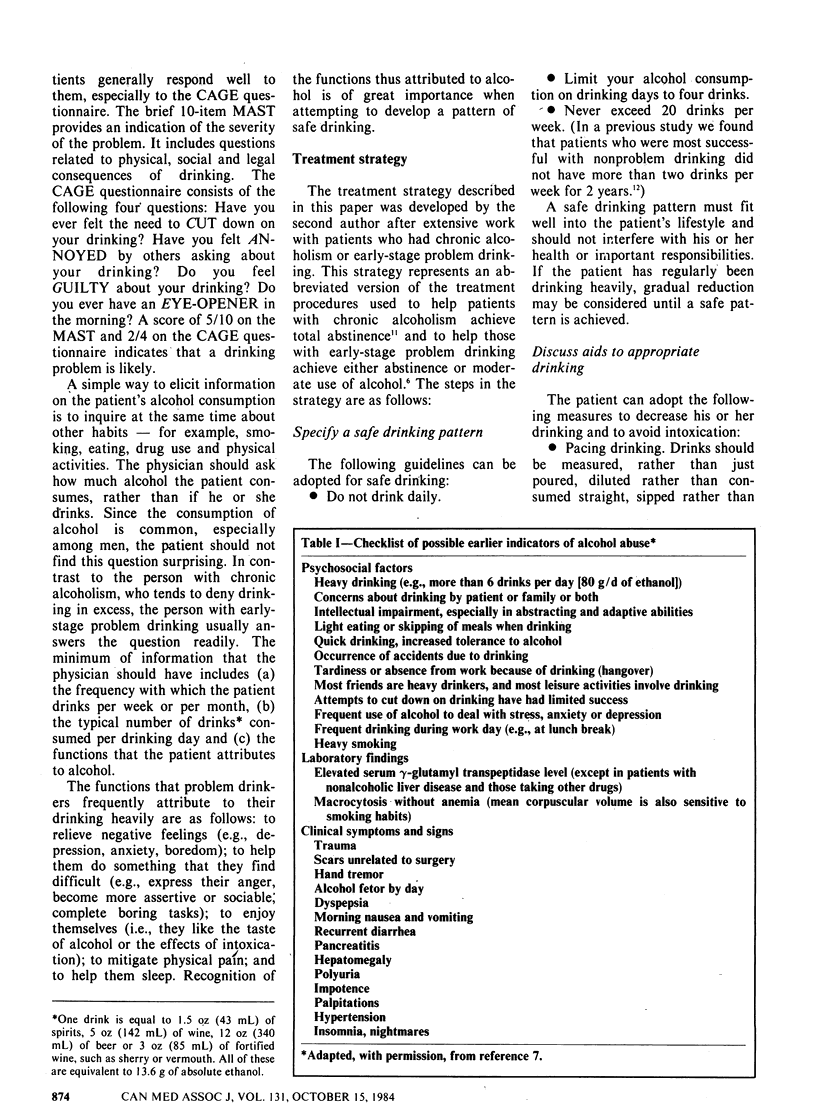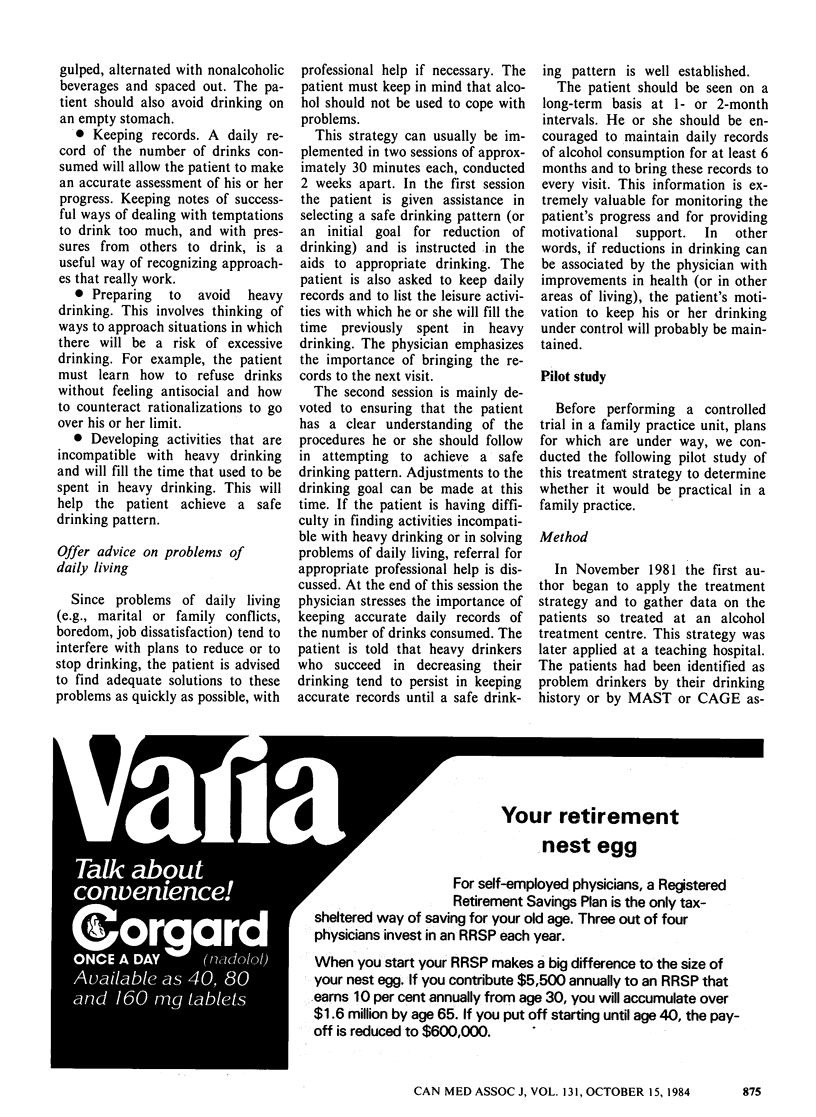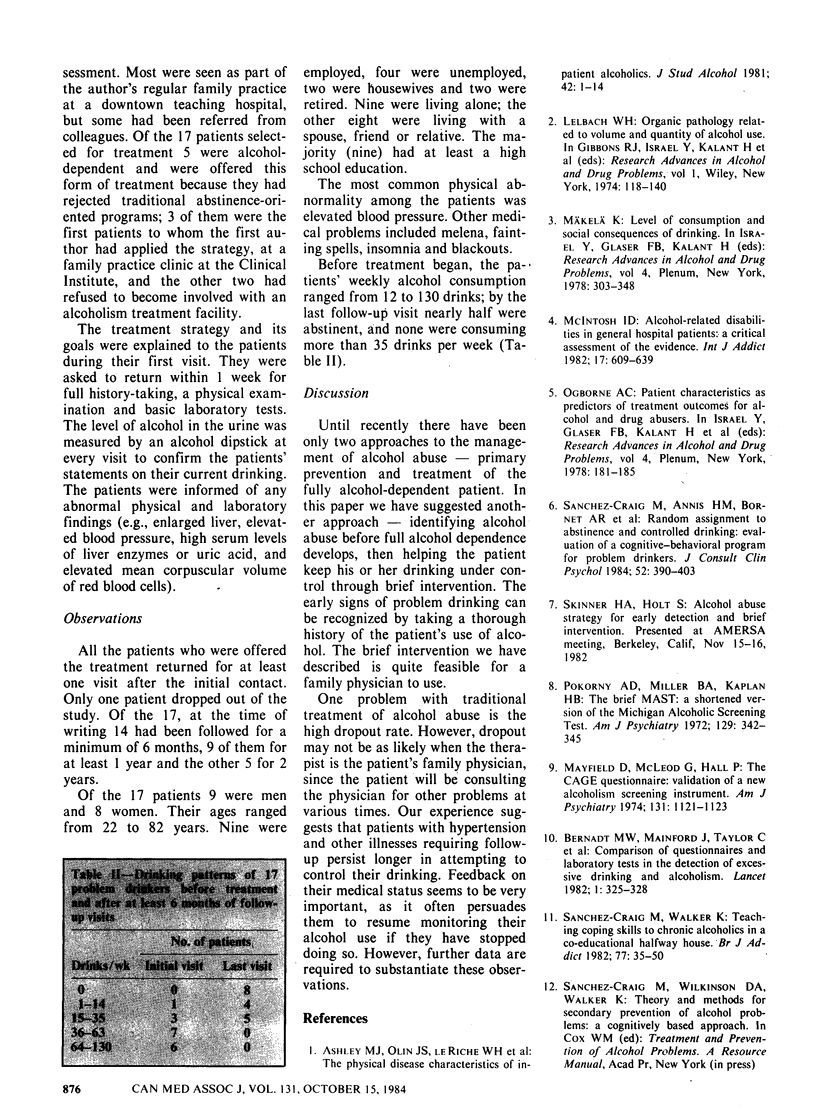Abstract
Family physicians are in a particularly good position to identify problem drinking in its early stages through the recognition of various psychosocial and medical indicators. Thorough history-taking or the use of a specific questionnaire should provide confirmation. Patients so identified can then be offered treatment designed to help them moderate their drinking, if not to achieve abstinence. The treatment strategy described in this paper involves specifying a safe drinking pattern, instructing the patient in the use of aids to appropriate drinking and seeing the patient at 1- to 2-month intervals for follow-up assessment. In a pilot study of this strategy 16 of 17 patients reduced their drinking substantially, and 8 were abstinent at the last follow-up visit. Only 1 of the 17 dropped out of treatment; the high rate of compliance may have been primarily due to the patient's need to see the family physician for other problems. Visits to the family physician for other medical problems provide an opportunity to motivate patients to continue monitoring their drinking.
Full text
PDF



Selected References
These references are in PubMed. This may not be the complete list of references from this article.
- Ashley M. J., Olin J. S., Harding le Riche W., Kornaczewski A., Schmidt W., Corey P. N., Rankin J. G. The physical disease characteristics of inpatient alcoholics. J Stud Alcohol. 1981 Jan;42(1):1–14. doi: 10.15288/jsa.1981.42.1. [DOI] [PubMed] [Google Scholar]
- Bernadt M. W., Mumford J., Taylor C., Smith B., Murray R. M. Comparison of questionnaire and laboratory tests in the detection of excessive drinking and alcoholism. Lancet. 1982 Feb 6;1(8267):325–328. doi: 10.1016/s0140-6736(82)91579-3. [DOI] [PubMed] [Google Scholar]
- Mayfield D., McLeod G., Hall P. The CAGE questionnaire: validation of a new alcoholism screening instrument. Am J Psychiatry. 1974 Oct;131(10):1121–1123. doi: 10.1176/ajp.131.10.1121. [DOI] [PubMed] [Google Scholar]
- McIntosh I. D. Alcohol-related disabilities in general hospital patients: a critical assessment of the evidence. Int J Addict. 1982 May;17(4):609–639. doi: 10.3109/10826088209053007. [DOI] [PubMed] [Google Scholar]
- Pokorny A. D., Miller B. A., Kaplan H. B. The brief MAST: a shortened version of the Michigan Alcoholism Screening Test. Am J Psychiatry. 1972 Sep;129(3):342–345. doi: 10.1176/ajp.129.3.342. [DOI] [PubMed] [Google Scholar]
- Sanchez-Craig M., Annis H. M., Bornet A. R., MacDonald K. R. Random assignment to abstinence and controlled drinking: evaluation of a cognitive-behavioral program for problem drinkers. J Consult Clin Psychol. 1984 Jun;52(3):390–403. doi: 10.1037//0022-006x.52.3.390. [DOI] [PubMed] [Google Scholar]
- Sanchez-Craig M., Walker K. Teaching coping skills to chronic alcoholics in a coeducational halfway house: I. Assessment of programme effects. Br J Addict. 1982 Mar;77(1):35–50. doi: 10.1111/j.1360-0443.1982.tb03248.x. [DOI] [PubMed] [Google Scholar]


